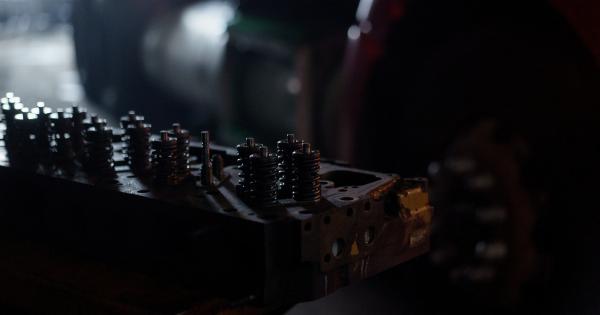Open heart surgery is a major procedure that requires significant recovery time. It is not uncommon for individuals to feel overwhelmed and fatigued after such a life-altering event.
Taking a break and allowing oneself to rest and heal is not only understandable but highly recommended. In fact, post-operative rest is an integral part of the recovery process and plays a crucial role in achieving optimal outcomes.
This article will explore the importance of taking a break after open heart surgery and provide some useful insights for a smooth recovery.
Understanding open heart surgery
Open heart surgery is a medical procedure conducted to treat a wide range of conditions affecting the heart.
It involves making an incision in the chest to gain access to the heart, allowing surgeons to repair damaged heart valves, arteries, or perform bypass surgeries. While the surgery itself is a critical step in improving heart health, the recovery period following the procedure is equally important.
The importance of rest
Rest is essential after open heart surgery to ensure proper healing and reduce the risk of complications. During open heart surgery, the body experiences extensive trauma, both at the surgical site and systemically.
Resting allows the body to focus its energy on repairing damaged tissues, reducing inflammation, and regaining strength.
Moreover, rest promotes the rejuvenation of the mind and can help individuals cope with the emotional and psychological impacts of undergoing such a major surgery.
By taking time to relax and recover, patients are better equipped to manage stress and anxiety, which are common after open heart surgery.
The physical benefits of taking a break
Taking a break after open heart surgery offers numerous physical benefits. Here are some key advantages:.
1. Facilitates healing:
Resting allows the body to heal more efficiently. It helps reduce inflammation, promotes the growth of new tissue, and improves overall wound healing. By taking a break, patients give their bodies the time and energy needed to recover fully.
2. Prevents complications:
Engaging in physical activities too soon after open heart surgery can increase the risk of complications such as excessive bleeding, infection, or damage to the surgical site.
By taking a break and refraining from strenuous activities, patients minimize the chances of encountering post-operative complications.
3. Reduces fatigue:
Open heart surgery can leave patients feeling fatigued and exhausted. This fatigue is not only physical but also mental. By taking a break and allowing the body to rest, patients can combat this fatigue and gradually regain their strength and stamina.
4. Supports cardiovascular health:
Resting is crucial for maintaining heart health post-surgery. It helps regulate blood pressure, heart rate, and overall cardiovascular function.
By giving the heart time to recover, individuals can minimize the strain on the cardiovascular system and prevent any additional heart-related issues.
The mental and emotional benefits of taking a break
While the physical benefits of taking a break after open heart surgery are undeniable, it is equally important to address the mental and emotional aspects of recovery. Here’s how rest can positively impact mental and emotional well-being:.
1. Reduced stress and anxiety:
Open heart surgery is a significant event that can cause immense stress and anxiety. By taking a break and focusing on rest, individuals can alleviate these feelings to a certain extent.
Rest promotes relaxation, which aids in reducing stress levels and promoting a sense of calmness.
2. Improved mental clarity:
During the recovery phase, the mind needs time to process the surgery and adjust to the changes in the body. Taking a break allows individuals to rest both physically and mentally, leading to improved mental clarity and focus.
3. Enhanced emotional well-being:
Emotional well-being is just as crucial as physical health. By taking a break and engaging in activities that promote relaxation, individuals can enhance their emotional well-being.
This can include spending quality time with loved ones, pursuing hobbies, or simply enjoying quiet moments of solitude.
4. Increased confidence and motivation:
Rest plays a vital role in rebuilding confidence and motivation after open heart surgery. By taking the necessary time off, individuals can gradually regain their strength, resilience, and faith in their body’s ability to heal.
This renewed confidence can significantly impact the overall recovery journey.
Factors to consider when taking a break
While taking a break is essential after open heart surgery, it is crucial to consider a few factors to ensure the break is effective and safe:.
1. Follow medical advice:
Always consult the healthcare team and follow their specific instructions regarding rest and recovery. They will provide personalized guidance based on the individual’s condition and surgery outcomes.
2. Gradually increase activity levels:
While rest is vital, gradually increasing activity levels is equally important. Start with light activities such as short walks and slowly progress to more moderate exercise under medical supervision.
This helps prevent deconditioning and promotes an active lifestyle in the long run.
3. Maintain a balanced diet:
Nutrition plays a critical role in the healing process. Ensure you follow a balanced diet recommended by your healthcare team to provide your body with the necessary nutrients for recovery.
4. Seek emotional support:
Recovering from open heart surgery can be emotionally challenging. Seek support from friends, family, or professional counselors who can help you navigate this phase and provide the emotional support you need.
Returning to regular activities
While taking a break after open heart surgery is crucial, it is equally important to gradually return to regular activities as advised by your healthcare team. Here are a few tips to help ease the transition:.
1. Engage in cardiac rehabilitation:
Cardiac rehabilitation programs are custom-designed to assist individuals in recovering from heart surgeries. These programs typically include exercise routines, education about heart-healthy habits, and emotional support.
2. Listen to your body:
Pay close attention to any signs or symptoms during physical activities. If you experience pain, shortness of breath, or exhaustion, it’s important to scale back and consult your healthcare provider before resuming the activity.
3. Gradually increase intensity and duration:
When returning to exercise or physical exertion, do so gradually. Start with light activities and slowly increase the intensity and duration as your body becomes stronger and more capable.
4. Set realistic goals:
Setting realistic goals helps maintain motivation and encourages a steady recovery. Work with your healthcare team to establish achievable milestones and celebrate each accomplishment along the way.
Conclusion
After undergoing open heart surgery, it is absolutely okay to take a break. In fact, it is highly recommended to allow the body and mind to heal effectively.
Taking a break after surgery offers numerous physical, mental, and emotional benefits, including faster healing, reduced complications, improved mental well-being, reduced stress, and increased confidence. However, it is important to follow medical advice, gradually increase activity levels, maintain a balanced diet, and seek emotional support.
By taking the necessary time off and gradually returning to regular activities, individuals can ultimately achieve a smooth and successful recovery.




























